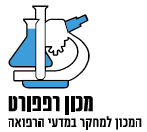
Shiran Bar
PhD Student

Adi Biram
PhD Student
Shiran Bar
Shiran Bar is from the Azrieli center for stem cells and genetic research, the institute of life science at the Hebrew University, supervised by Prof. Nissim Benvenisty. Shiran uses human pluripotent stem cells to study epigenetic mechanisms which are essential for normal embryonic development. Genomic imprinting is a unique epigenetic phenomenon in mammals, causing the block for asexual reproduction in mammals, requiring the genomes of both parents for normal development. In humans, alterations in imprinting result in severe developmental disorders and cancer.
In her research, Shiran examined the stability of imprinted genes, exposing a complex regulatory mechanism and identified novel imprinted genes.
She also inspected imprinting aberrations in hundreds of stem cell samples, identifying loss of imprinting tendencies in specific cell types and genes. Shiran also performed a global analysis of X-chromosome inactivation in human pluripotent stem cells. This inactivation is another essential epigenetic process, which occurs in female mammals to achieve dosage compensation between the sexes. This study demonstrated that in most human embryonic stem cells this inactivation is not normal.
Since pluripotent stem cells are extensively utilized in research and hold a great potential for tissue engineering, the identification of epigenetic aberrations can bear important implications for various applications.
Adi Biram
Adi Biram, from the Weizmann Institute of Science, supervised by Dr. Ziv Shulman, has focused her PhD thesis on understanding how protective immune responses and long-lasting immunity are established in intestinal tissues. Antibodies are a critical component of the immune system, and their continuous production by long-lived antibody-producing cells is essential for establishing enduring protection from invading pathogens. The precursors of antibody-forming cells are immune cells known as B cells. These cells express antibody on their cell surface, and each cell produces an antibody with a unique affinity and specificity towards a given antigen. A major question in the field is how B cells that bear high affinity antibodies are formed, and how these cells are selected over B cells that carry low affinity antibodies. Many studies focused on antibody formation and affinity maturation in response to conventional vaccines; however, very little is known about how orally-delivered vaccines promote the emergence of beneficial antibodies. During her PhD studies, Adi defined the core principles that govern the generation of high affinity antibodies in the gut-associated lymphoid organs. To achieve this, she utilized novel imaging techniques that effectively capture all the B cell niches within the gut lymphoid organs and found that the rules of the immune response elicited by oral vaccination are different from those of conventional vaccinations. This revealed a process that is conceptually different from the chain of events that take place following common vaccination. These findings provide fundamental insights towards the design of efficient oral vaccines.

Itai Antoine Toker
PhD Student

Idan Hekselman
PhD Student
Itai Antoine Toker
Itai Antoine Toker of Tel Aviv University studies non-DNA-based inheritance in the laboratory led by Oded Rechavi. The idea that biological information could be transmitted across generations in forms other than DNA was dismissed for decades, yet accumulating evidence in recent years support that alternative forms of inheritance exist. Using the nematodes C. elegans as a model organism, Itai investigates the inheritance of small RNAs, molecules that affect the physiology of many animals (including humans). Together with his colleagues, Itai revealed in nematodes a path through which the activity of the brain could impact the fate of later generations: the production of small RNAs in the brain generates changes in gene expression that affect behavior in the descendants. Itai also characterized a mechanism in the oocytes that controls the orderly inheritance of small RNAs in nematodes, highlighting that small RNA inheritance is a tightly regulated process that can have dramatic consequences when uncontrolled. It is not known whether non-DNA-based inheritance occurs also in humans. Yet, numerous diseases exhibit inherited components that could not be explained using classical genetic approaches. Therefore, a better understanding of non-conventional inheritance could potentially uncover new options for treatment and prevention of diseases.
Idan Hekselman
Idan Hekselman is an MD-PhD student from Ben-Gurion University of the Negev, a program which integrates medicine and research studies. His research work, led by professor Esti Yeger-Lotem, aims to decipher the molecular mechanisms that underlie the tissue-specific manifestation of hereditary diseases. Idan applies approaches from the fields of big data and machine learning. By combining these approaches with state-of-the-art single cell RNA sequencing technology, he analyzes the molecular properties of different cell types and the expression patterns of disease-associated genes within these tissues. In collaboration with the Monsonego lab from Ben-Gurion University and the Friedman lab from Weizmann Institute, he identified groups of lymphocytes that were not previously associated with aging. Given their role as the main orchestrators of the immune response, the appearance of these groups with age may correspond with the deterioration in immune competence in the elderly on one hand, and the emergence of chronic inflammation on the other hand. This project, along with many others, demonstrated to Idan the importance of inter-disciplinary research and the synergic potential of experimental and advanced computational collaborations in biological research.



